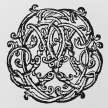
Character Lessons
Maya Angelou said, “Courage is the most important of all the virtues because without courage, you can't practice any other virtue consistently.” Atticus Finch in Harper Lee’s To Kill a Mockingbird, strives to teach his young children, Jem and Scout, to courageously look at life from others perspective. One instance occurs when Jem and Scout read to Mrs. Dubose. Mrs. Henry Lafayette Dubose, an old woman who designates the Finch family as her prey, criticizes Atticus and his children regularly for defending a black man in court. Her insults varying from rude to obscene. In response to the numerous attacks, Jem cuts down Mrs. Dubose’s camellias with Scout’s baton in a fit of rage. Mrs. Dubose requests that Jem and Scout read to her as their punishment, and Atticus obliges. Atticus knows that Mrs. Dubose has a morphine addiction that clouds her mind when she insults his family, but his children do not. He also knows that she wants to overcome her addiction with the help of Jem and Scout reading to her. Did Atticus make the right decision to not tell his children about Mrs. Dubose’s addiction and physical condition? Atticus made the right decision to not tell Jem and Scout about Mrs. Dubose’s up coming death for three reasons: Jem and Scout would have treated Mrs. Dubose without respect, Mrs. Dubose did not want them to know about her coming death, and Atticus could not have taught his children as great a lesson about courage.
Atticus made the right decision to not tell his children about Mrs. Dubose and her deteriorating state because Atticus knew that Jem and Scout would treat Mrs. Dubose without due respect. Jem and Scout could have treated her with pity, mortification, or fearfulness. Atticus wanted to teach his children to treat everyone around them the same: respectfully. If Atticus told Jem and Scout that Mrs. Dubose had an addiction, they might think to pity her. That would do Mrs. Dubose no good as well as Jem and Scout. The people of the town already treated Mrs. Dubose with pity and she still had an addiction. Pity did not help Mrs. Dubose. Pitying her would not help Jem and Scout either because this would teach them to treat people with neglectful compassion, just like the people of the town had. Jem and Scout might have viewed her with mortification. If Jem and Scout knew Mrs. Dubose’s unflattering position, they might spit venom back at her by disrespecting her; after all, Lee (1995) already said Jem cut down Mrs. Dubose’s camellias,
...We had just come to her gate when Jem snatched my baton and ran flailing wildly up the steps into Mrs. Dubose’s front yard, forgetting everything Atticus had said,... He did not begin to calm down until he had cut the tops off every camellia bush Mrs. Dubose owned… (p.118)
Jem and Scout might have been afraid of her if they knew she had an addiction. Fear motivates disrespect in children, and Atticus knew this. Jem and Scout both do their best when Atticus loves them and does not scare them or make them fearful. On the contrast, Jem and Scout both do their worst when confronted with fearful situations as seen in chapter 6, when Jem and Scout trespass into the Radleys' (their neighbors) yard and almost get shot. They also lie to their father (Lee, 2010, p.57-64). By not telling Jem and Scout that Mrs. Dubose had physical problems, Atticus kept Jem and Scout from treating Mr. Dubose without respect.
Mrs. Dubose did not want Jem and Scout to know her condition, Atticus did not tell Jem and Scout about her health. Mrs. Dubose simply would not like them to know. Readers of To Kill a Mockingbird see that Mrs. Dubose herself does not tell Jem and Scout that she has demons who haunt her. One proof for this: Mrs. Dubose thought that if Jem and Scout knew the truth, that might ruin their image of her. As an older woman, appearance holds a high position on her list of priorities. So high in fact that she criticizes Scout on her appearance (Lee, 2010, p.115). The other proof: Her addiction shamed her. If Mrs. Dubose did not feel ashamed of her addiction, then why did she put so much effort into fighting off her addiction? Atticus did not tell his children about Mrs. Dubose’s health because Mrs. Dubose did not want Jem and Scout to know.
Finally, Atticus could not have taught his children as great a lesson about courage if he had told them about Mrs. Dubose's physical state. Atticus reinforced what he had been teaching Jem and Scout (to look at other’s perspective) because of the situation they put themselves in. They disrespected Mrs. Dubose because they did not look at life from her perspective. They disregarded her circumstances and hardships every time they walked past her house. Atticus also taught them the virtues of patience and grace. Scout describes Atticus’s interaction with Mrs. Dubose as quaint, jolly, and respectful, “When the three of us came to her house, Atticus would sweep off his hat, wave gallantly to her and say, ‘Good evening , Mrs. Dubose! You look like a picture this evening.” (p.115). Lee (2010) illustrates a seen in chapter 11 where Atticus tells Jem that Mrs. Dubose has died and Jem and Scout both reflect back to the days they read to her. Atticus says this to Jem,
... I wanted you to see something about her--I wanted you to see what real courage is, instead of getting the idea that courage is a man with a gun in his hands. It’s when you know you’re licked before you begin but you begin anyway and you see it through no matter what…. (p.128)
Atticus taught them that courage takes grit, determination, and a willingness to do good through Mrs. Dubose’s efforts to break her addiction. Atticus taught his children a valuable lesson about courage by not telling them about Mrs. Dubose’s unhealthy position.
In conclusion, Atticus made the right decision to not tell Jem and Scout about Mrs. Dubose’s coming death for three reasons: Jem and Scout would have treated Mrs. Dubose without respect, Mrs. Dubose did not want them to know about her coming death, and Atticus could not have taught Jem and Scout as great a lesson about courage. Maya Angelou said that courage holds the central part and piece of character, because without the trait of courage, other character traits can not demonstrate themselves consistently. Atticus taught Jem that truth. Jem could not have patience or grace consistently without courage to look at another’s perspective and have respect for them. He also learned to persevere even when he could not win. People must have courage to consistently exhibit excellent character.






Comments
There are no comments for this story
Be the first to respond and start the conversation.